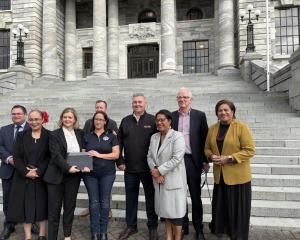More people than expected attended the "emotionally charged" forum at Rydges,where issues specific to Queenstown were raised, IHC director of advocacy Trish Grant said.
One was "the lack of a respite, so parents and disabled people can have some time out from each other".
Also lacking were "options for people once they leave school".
The forum is part of a series which aims to identify issues at a local level and enable discussion between parents, as well as addressing IHC's "Call to Action" to the Government.
IHC is asking the Government to increase services to disabled children and their families, such as early access to support and better support for school leavers.
Earlier this week, the Government announced an extra $143.7 million for disability support services over the next four years, and Ms Grant was able to tell parents what that would mean for their families.
At the forum there were parents of disabled children from Clyde, Cromwell, Wanaka and Queenstown, as well as teachers working in various areas of the education sector.
From the discussions, it was learned parents in the Central Otago region had varying experiences when dealing with the authorities and agencies.
One aspect of disability that was agreed upon was there was a lack of support after parents received an initial diagnosis.
One mother said she was told her daughter had cerebral palsy "and that was it, I didn't even know what cerebral palsy was".
Another mother said after her son was diagnosed with autism she was left in shock and received no further information.
Although the diagnosis process was difficult, most parents felt relieved when a diagnosis was made since they could then research the condition and help their child.
Ms Grant said another 14 forums would be held and information would be collated and presented to the appropriate officials.
"It's really good for us as national advocates to feed this into our lobbying with officials and politicians," Ms Grant said.
Advertisement












